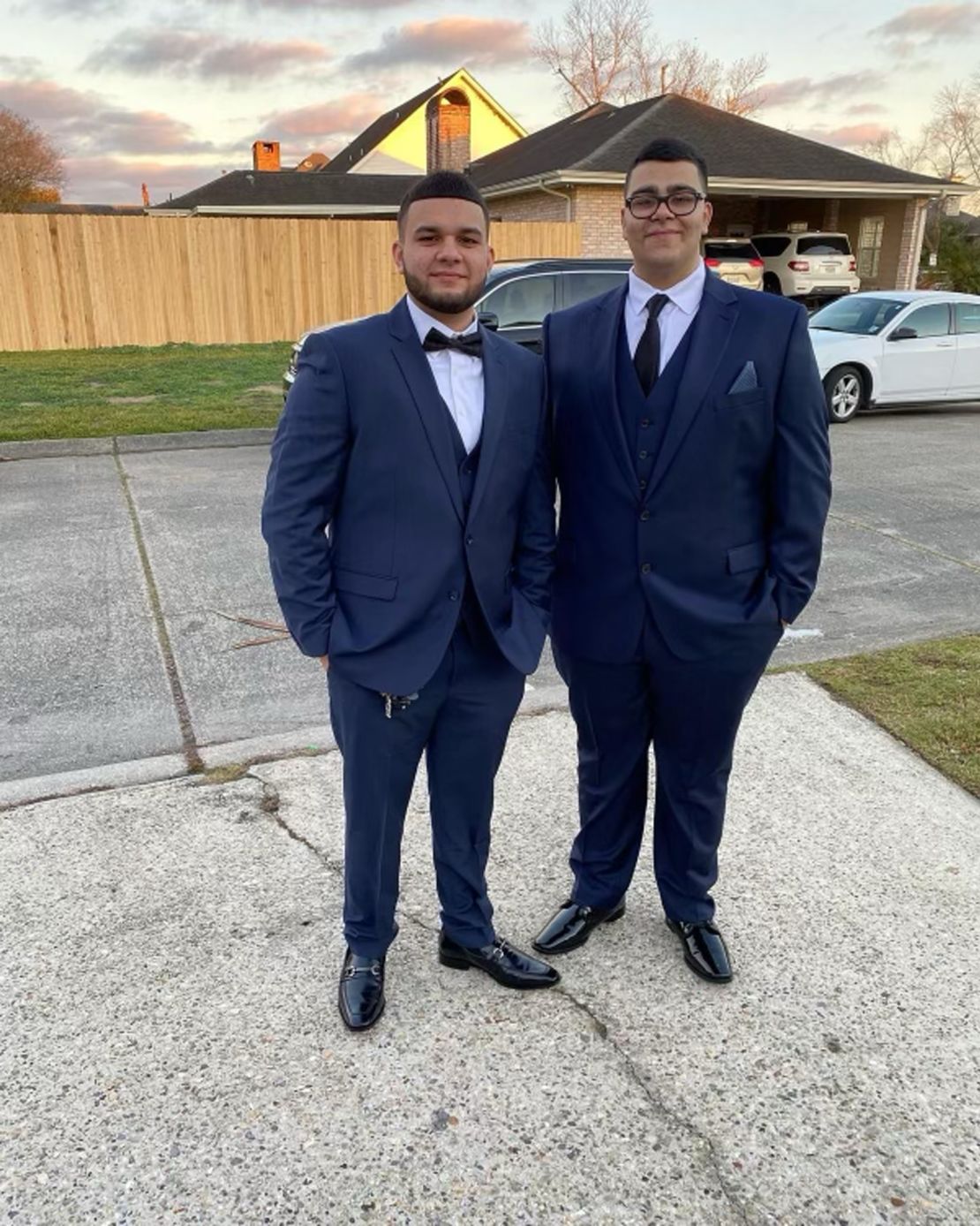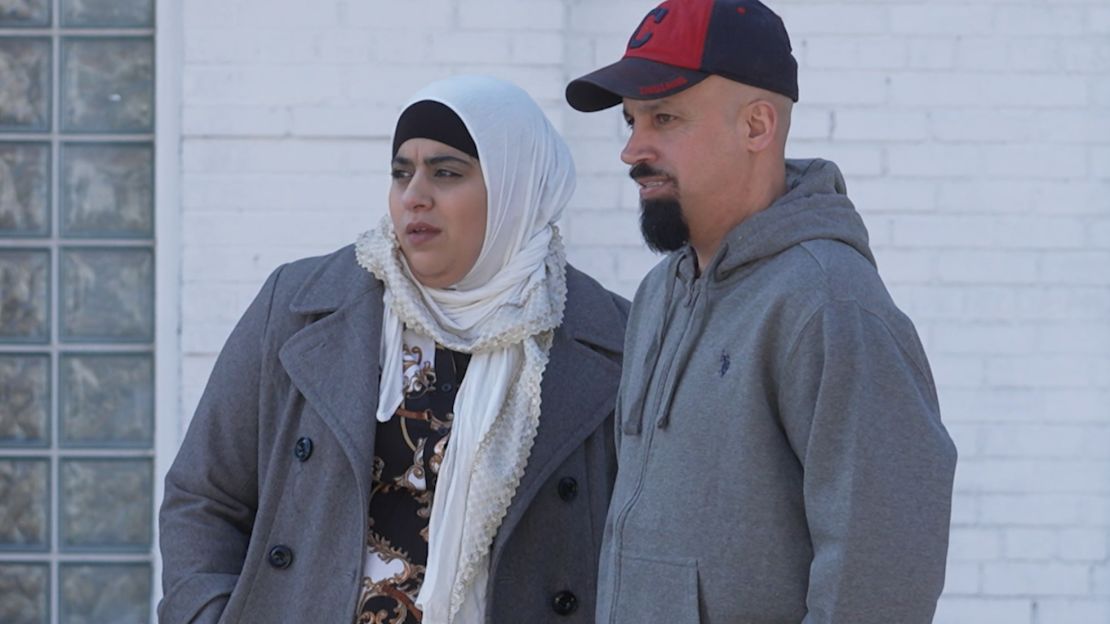The last moments of Mohammad Khdour’s life could be those of any American teenager: taking the car out during a study break, snacking on chocolate waffles, posing for Instagram.
Those care-free moments with his cousin along the hillsides of Biddu, in the occupied West Bank, were captured in photos and videos reviewed by CNN. They were snuffed out, his family says, when an Israeli gunman opened fire on their car, shooting the 17-year-old Khdour in the head.
The death of Khdour, a Florida-born US citizen, just weeks after another 17-year-old American citizen was shot under strikingly similar circumstances in the occupied West Bank, has underscored the frustrations among Palestinian-Americans who say the United States is doing little to respond to the deaths of their loved ones.
Videos from the aftermath of the February 10 shooting show several people rushing to the damaged car, pulling Khdour’s limp, bloodied body out from the shattered glass. Khdour died hours later at a Ramallah hospital, his family said.
The Israel Defense Forces referred questions about the case to the Israeli Security Agency, known as the Shin Bet, which did not immediately respond to CNN’s request for comment.
“He didn’t do nothing at all, he was just enjoying his day,” Khdour’s older brother, Hamed, told CNN. “I just want justice for my brother, that’s it.”

Two teens shot in the head
Three weeks before Khdour’s death, Tawfic Abdel Jabbar, a 17-year-old Palestinian-American who grew up in Louisiana, was also shot in the head by apparent Israeli gunmen. The IDF told CNN they received a report that an off-duty police officer and an Israeli civilian shot at a Palestinian “suspected of throwing stones” – which his family vehemently denies – and that the Israeli Police are investigating the shooting.
More than a month later, no arrests have been made in the case, and the family, which has received limited updates from authorities, is wondering why the US government doesn’t have answers.
“I don’t feel like my government is doing enough … or pressuring enough to come up with the killer and ask why he did this and put him behind bars,” Hafeth Abdel Jabbar, Tawfic’s father, told CNN.

According to a US official, US consular officials and investigators have visited both the Khdour and Abdel Jabbar families in the West Bank. The families say they are still waiting for updates.
US authorities are closely watching the Israeli investigations and are ready to escalate the cases with the Israeli government if the investigations fall short, the US official said.
Last week, US Secretary of State Antony Blinken offered his “deepest condolences” to the families of the two Palestinian-American teenagers “who reportedly were killed” in the occupied West Bank and said that there must be an investigation into their deaths.
“We’ve made clear that with regard to the incidents you’ve alluded to, there needs to be an investigation. We need to get the facts. And if appropriate, there needs to be accountability,” Blinken said at a news conference in Albania in response to a CNN question.
A number of American citizens have also been detained by Israeli forces in recent weeks. Blinken would not give details on their cases, citing privacy laws.
“We insist that people be treated fairly, that they be treated with due process, and that they be treated humanely,” Blinken said. “That’s something that, regardless of where an American citizen might be detained, we insist on. And we’ll continue to insist on.”
His comments did little to convince Khdour’s family.
“We don’t need talking, man,” Adnan Khdour, Mohammad’s uncle, said. “We need something. We want to see something.”

A history of inaction
The killing or detention of American citizens in occupied Palestinian territories by Israelis and the concerns about a lack of accountability date back years. In 2003, 23-year-old American activist Rachel Corrie was crushed by an Israeli army bulldozer while trying to block it from razing Palestinian homes in Gaza.
Nine years later, an Israeli civil court ruled Corrie’s death an accident.
In the spring of 2022, prominent Palestinian-American journalist Shireen Abu Akleh was shot and killed while reporting in the West Bank city of Jenin. That November, Defense Minister Benny Gantz confirmed that Israel would not be cooperating with a US probe into Abu Akleh’s death. A CNN investigation suggested that Abu Akleh was shot dead in a targeted attack by Israeli forces, despite wearing a protective helmet and a blue protective vest marked “Press.”
The IDF’s Military Advocate General said it would not press charges against any soldiers and that there was “no suspicion that a bullet was fired deliberately at anyone identified as a civilian and in particular at anyone identified as a journalist.”
“The US has created a situation where Israel, a foreign government, can kill US citizens knowing that the US is not going to hold them accountable,” said Maria LaHood, deputy legal director of the Center for Constitutional Rights, a New York-based nonprofit organization focused on civil and human rights issues. “It cements Israel’s impunity … the utter lack of accountability has created the situation we’re in right now.”
For Khdour’s family, their hopes for answers are tempered by their experience witnessing a lack of accountability for cases involving Palestinian-American victims.
“I’m hopeful,” said Khdour’s aunt, Ranaa Farraj. “But it wouldn’t be out of the ordinary if we don’t get the justice that we’re hoping for.”






